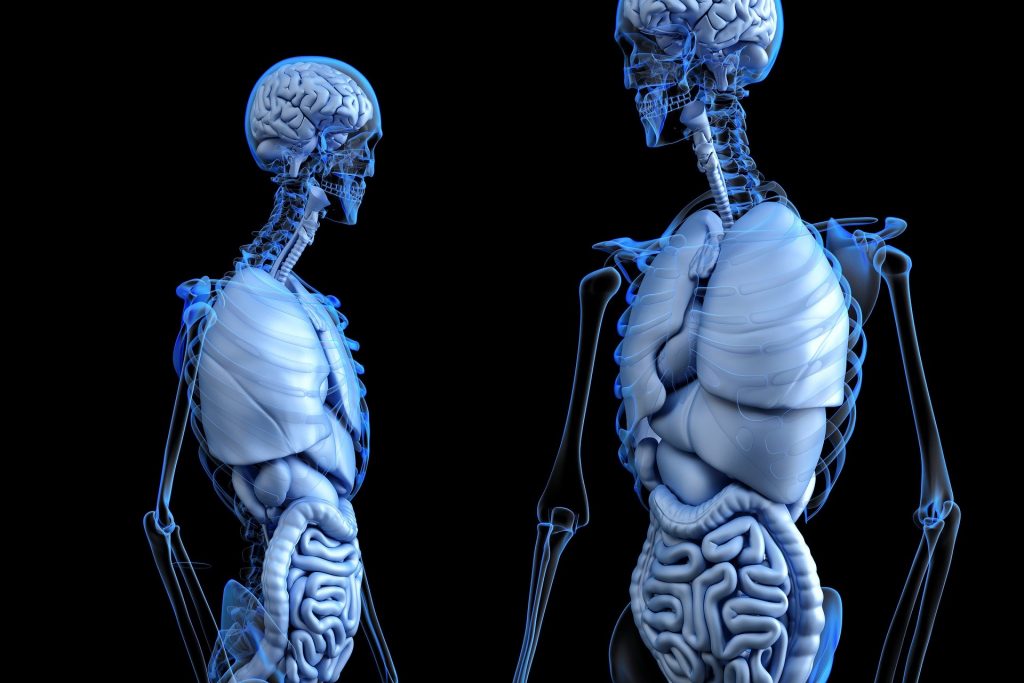BY AMANDA CHRISTMAN
While the world is swept up in the concerning, churning news of the coronavirus, there are two more things people are encouraged to pay attention to this month because the virus isn’t the only thing that can impact your health.
March is colon cancer month and also nutrition month.
Colon cancer is preventable but it’s one of the most common cancers and one of the most lethal in the United States, affecting men and women, according to Dr. Joshua Nochumson.
The good news is prevention and medical care has saved lives.
While colorectal cancer screening is recommended for people at 50 years of age, an uptick in a younger demographic has caused the American Cancer Society to recommend testing begin at 45 years old, Nochumson said. People who are concerned can contact their physician.
Warning signs that should bring someone to contact their doctor at any age is blood in the stool, changes in bowel movements and unexplained weight loss.
The thought of undergoing a colonoscopy may be disenchanting, even with sedation, but most patients say it wasn’t as bad as they thought, the doctor said.
Still, for those uncomfortable or fearful, there are even less invasive options to test.
Prior to the colonoscopy, patients are provided with a drink to clean out their bowels.
Nochumson said colonoscopies are performed at the surgery center in the Health & Wellness Center at Hazleton. They take about 20 to 30 minutes and once the sedative wears off patients are sent home.
If polyps (cancer precursors) are found, they are removed, he said.
And, that’s a good thing because the earlier it’s detected, the easier it is to treat.

While the world is swept up in the concerning, churning news of the new coronavirus, there are two more things people are encouraged to pay attention to this month because the virus isn’t the only thing that can impact your health. Dr. Joshua Nochumson, left, chats with nutrionist Molly Sweeney at the Health & Wellness Center on Moisey Drive, Hazle Twp.
Still resistant to the idea?
“It’s better than doing nothing, sitting and waiting. A lot of cancers we can’t prevent but this cancer we can prevent,” said Nochumson.
“It’s always better to prevent something than treat something,” he continued.
Surgery brings with it a 6 to 8 week recovery period followed by chemotherapy and/or radiation.
Genetics and lifestyle can create an increased risk in colon cancer, such as a low fiber diet, alcohol intake, obesity, smoking and a lack of physical activity and that’s where Molly Sweeney, a registered dietician with Lehigh Valley Hospital Physicians Group can pitch in.
“Nutrition affects absolutely everything,” said Sweeney, who admittedly has little love for the word diet.
Instead, words like proper nutrition and healthy lifestyle seem more appropriate as depriving oneself of a favorite food can lead to binge-eating the wrong food, when it’s actually OK to have a treat once and a while.
Across the country, Americans aren’t taking in enough fiber, which should total between 25 and 35 grams per day and are still consuming too much processed foods.
Fruits and vegetables offer a natural way to introduce fiber to the body. Chai and flaxseed are good choices also, she said. A cup of raspberries for example is about 9 grams.
A lot of good nutrition comes down to stopping and thinking about making the best choices.
“An apple versus apple juice,” Sweeney said.
Going back to what our ancestors ate is a good model for proper nutrition — lean meats, fruit and vegetables.
While it may be difficult to find her preferred grown locally fruit and vegetables nine months of the year, Sweeney said shopping the perimeter of the grocery store will help people stay away from processed foods that can damage healthy eating habits.
Many people may be deterred to eating healthier because there are processed convenience foods that seem so much faster to make but adding a meal prep day to weekly demands can help make it happen, she said. Making meals in batches and freezing them is another option. Slow cookers can be a big help, too.
Foodie trends are leaning toward fresh, plant-based food which offer important nutrients.
A plate should be half nonstarchy vegetable like carrots or lettuce and eggplant and a quarter lean protein like chicken, fish or turkey or lean red meat in moderation. The last quarter is saved for complex carbohydrates like brown rice, sweet potatoes, wheat or rye breads, lentils and beans.
Water intake is just as important to nutrition as anything, Sweeney said.
While you may not want to slow down on exercise, there are areas Americans can afford to take their time on.
Eating a little slower can help people satisfy their hunger with less food, Sweeney said.
Contact the writer: achristman@standardspeaker.com; 570-501-3584




